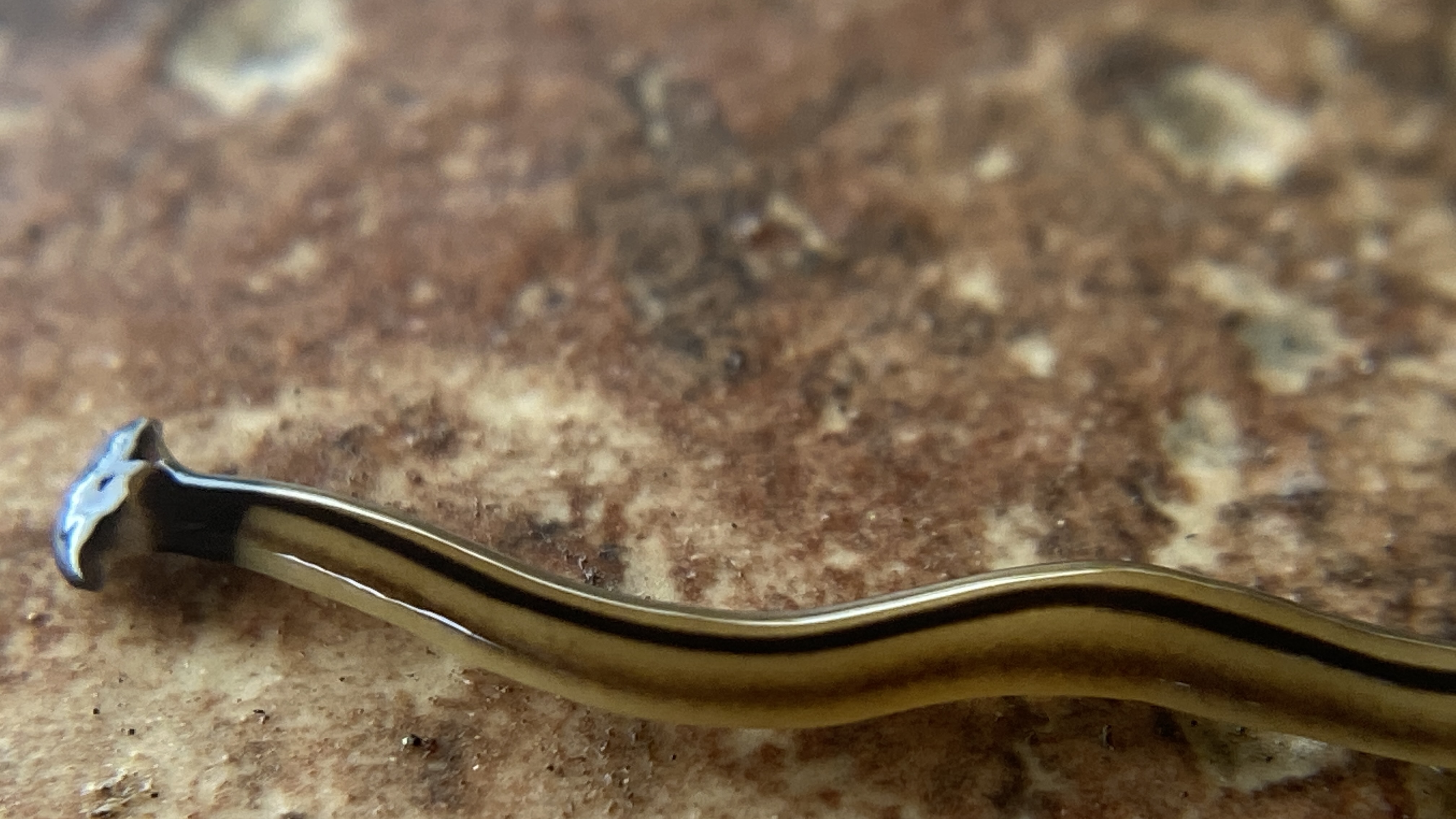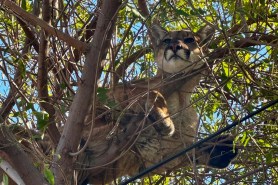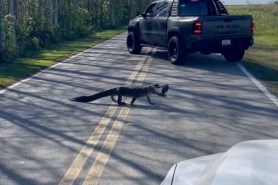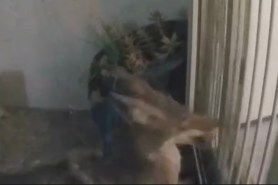

Wildlife officials are warning pet owners about an invasive worm in Maine. The hammerhead worm looks like a cross between an earthworm and something you would see in a science fiction movie. As the name suggests, the head is flat like that of a hammerhead shark.
Videos by Outdoors
According to the U.S. Department of Agriculture (USDA), the hammerhead worm is native to Southeast Asia. It poses multiple risks in the U.S. if it becomes “established.” That means the worm would essentially be here to stay and become part of the ecosystem. The hammerhead worm eats earthworms, which could harm not only natural areas but also agriculture, as earthworms play an important role in soil health.
The Maine Department of Inland Fisheries and Wildlife recently posted about the worm in Maine on their social media account. Not only is the species invasive, but it can also irritate human skin. And even worse, they can make pets sick if your cat or dog were to eat one.
This is a hammerhead worm. If you are thinking that it doesn’t look like it belongs in Maine, you’re right! But there…
Posted by Maine Department of Inland Fisheries & Wildlife on Wednesday, August 6, 2025
In their post, Maine’s wildlife officials warn people from cutting them or smashing them in half. This is how the worm actually multiplies. So if you cut one in half in your backyard, now there are two.
Getting Rid of the Hammerhead Worm
So what should you do if you find one? According to researchers at Virginia Tech, you should first put on some gloves. The worm is covered in a mucus that can irritate human skin or potentially get in your eyes.
Next, you’ll want to use tongs or something else to pick the worm up and put it in a container. From there, to kill the worm, you can leave it in the sun, pour salt, hand sanitizer or soapy water in the container. Or simply put it in the freezer for a bit. Afterwards, be sure to wash your hands thoroughly.
Unfortunately, hammerhead worms have been spotted in many areas of the U.S., including the East Coast, the Pacific Northwest, and more. In Maine, they’re trying to limit the worms from entering. That’s why in their post, they say, “If you find them in plant soil sold at a store, report it to the Maine Warden Service at 1-800-ALERT-US or MaineOGT.org.”









